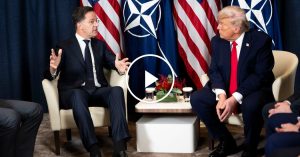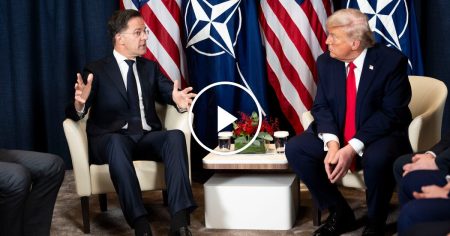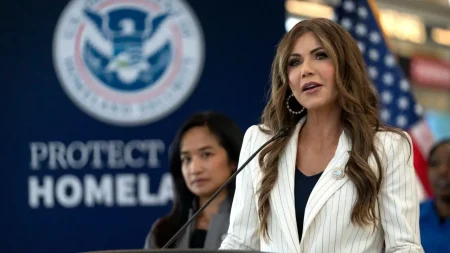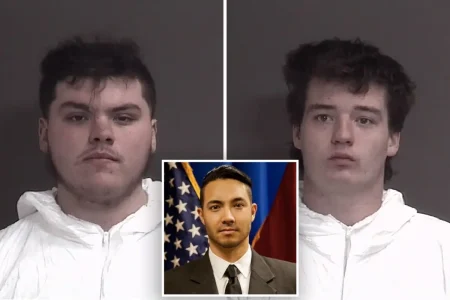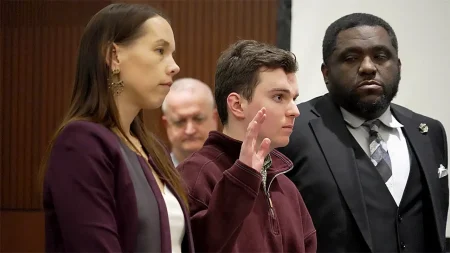Brazil Braces for Fallout as Supreme Court Deliberates on Bolsonaro’s Coup Allegations
Political Tension Escalates as Former President’s Legal Challenges Mount
In the ornate chambers of Brazil’s Supreme Court, justices are deliberating what may become one of the most consequential legal decisions in the nation’s democratic history. Former President Jair Bolsonaro faces serious charges of orchestrating an attempted coup, allegations that have polarized Latin America’s largest democracy and left the current administration preparing for potential fallout. As the judicial process unfolds with methodical precision, President Luiz Inácio Lula da Silva’s government is quietly developing contingency plans for additional sanctions, recognizing that any ruling will have profound implications for Brazil’s political landscape and democratic institutions.
The case against Bolsonaro stems from the tumultuous aftermath of the 2022 presidential election, when supporters of the defeated incumbent stormed government buildings in Brasília on January 8, 2023, in scenes that drew immediate comparisons to the January 6, 2021, Capitol riot in Washington. Investigators allege that Bolsonaro played a central role in fomenting discontent and challenging electoral results without evidence, culminating in what prosecutors characterize as a coordinated attempt to overturn the legitimate transfer of power. “This investigation represents an unprecedented examination of executive accountability in our democratic system,” explains Political Science Professor Mariana Santos of the University of São Paulo. “The evidence being considered includes digital communications, witness testimonies, and documentation of meetings where strategies to undermine electoral integrity were allegedly discussed.”
The legal proceedings have unfolded against a backdrop of growing polarization, with Bolsonaro maintaining a significant base of support despite his legal troubles. His defenders argue that the former president is facing political persecution, while critics contend that accountability for threatening democratic institutions is essential for Brazil’s future stability. Justice Minister Flávio Dino has emphasized that the case “follows strict constitutional parameters” and represents the independence of Brazil’s judiciary rather than political vengeance. Meanwhile, international observers from organizations including the Organization of American States and the European Union have been monitoring developments closely, recognizing the case as a potential bellwether for how democracies handle challenges to peaceful transitions of power.
Government Prepares for Multiple Scenarios as Tensions Simmer
While the Supreme Court deliberates, President Lula’s administration has been methodically preparing for various possible outcomes, recognizing that either a conviction or acquittal could trigger significant social unrest. Sources within the presidential palace, speaking on condition of anonymity due to the sensitivity of the situation, reveal that security protocols have been enhanced around key government installations, and coordination between federal and state law enforcement has been strengthened. “This isn’t merely about preparing for potential protests,” notes one senior security official. “It’s about safeguarding democratic institutions and ensuring that Brazil can process this judicial decision, whatever it may be, without disruption to constitutional order.”
The potential penalties facing Bolsonaro extend beyond criminal sanctions to include political disqualification that could permanently alter Brazil’s political landscape. Electoral authorities have already barred the former president from running for office until 2030 due to abuse of power and misuse of government resources during his presidency. Additional convictions could extend this prohibition and potentially lead to imprisonment, effectively removing one of the most significant figures in contemporary Brazilian politics from the electoral equation. Economic analysts are closely monitoring the situation as well, with markets showing sensitivity to developments in the case. “Investor confidence in Brazil’s institutions remains cautious,” explains economist Rafael Mendonça of Itaú Bank. “The court’s decision and the government’s handling of the aftermath will be crucial indicators of institutional stability, which directly impacts economic forecasts and investment strategies.”
Beyond immediate security concerns, the Lula administration is developing a broader strategy to address the deep polarization that has characterized Brazilian society in recent years. This includes potential legislative initiatives aimed at strengthening electoral systems against disinformation and reinforcing democratic safeguards. “The challenge isn’t just managing the immediate reaction to the court’s decision,” explains Minister of Institutional Relations Alexandre Padilha. “It’s about rebuilding confidence in our democratic system among all Brazilians, including those who have been influenced by narratives questioning the legitimacy of our electoral processes.” Civil society organizations have been engaged in dialogue with government representatives, proposing education campaigns about democratic values and the rule of law that could be implemented regardless of the Supreme Court’s ultimate decision.
Historical Context and International Implications
Brazil’s current constitutional crisis carries profound historical significance for a nation that emerged from military dictatorship only in 1985. The charges against Bolsonaro represent a test of the democratic institutions established under the 1988 Constitution, often called the “Citizen Constitution” for its emphasis on civil liberties and democratic principles. The Supreme Court, in particular, has assumed an increasingly central role in Brazil’s democracy, stepping in to resolve conflicts between branches of government and protect constitutional order during periods of political turbulence. Chief Justice Rosa Weber has emphasized that the court’s deliberations “reflect the maturation of Brazil’s democratic system and its capacity to address even the most serious threats to constitutional order through legal rather than extralegal means.”
The international implications of the case extend far beyond Brazil’s borders, potentially influencing how other democracies respond to challenges to electoral integrity and peaceful transitions of power. Throughout the Americas, political analysts and legal scholars are watching closely, recognizing that the precedents established could shape approaches to similar challenges elsewhere. “What we’re witnessing in Brazil is part of a broader global pattern of stress tests for democratic systems,” observes Carlos Pereira, professor at the Getúlio Vargas Foundation. “How Brazil navigates this crisis will provide valuable lessons for other nations facing similar challenges to electoral legitimacy and constitutional order.”
The Biden administration has maintained a careful stance, emphasizing support for democratic processes while avoiding direct commentary on the specific legal proceedings. Nevertheless, U.S. diplomats have conveyed that the strength of bilateral relations depends on shared commitment to democratic principles. Similarly, European leaders have expressed support for Brazil’s judicial independence while emphasizing the importance of due process. This international attention underscores the case’s significance as a barometer for democratic resilience in an era of increasing challenges to established democratic norms worldwide.
As Brazil awaits the Supreme Court’s decision, the nation stands at a crossroads that will define not only the fate of a former president but also the trajectory of its democratic institutions for generations to come. Whatever the outcome, the government’s preparations for potential consequences reflect a sobering recognition that healing Brazil’s political divisions and strengthening democratic resilience will require sustained effort beyond any single judicial verdict. For a country that has overcome military dictatorship within living memory, the current challenge represents another critical test of its democratic maturity—one that will be closely watched both within Brazil and around the world.
